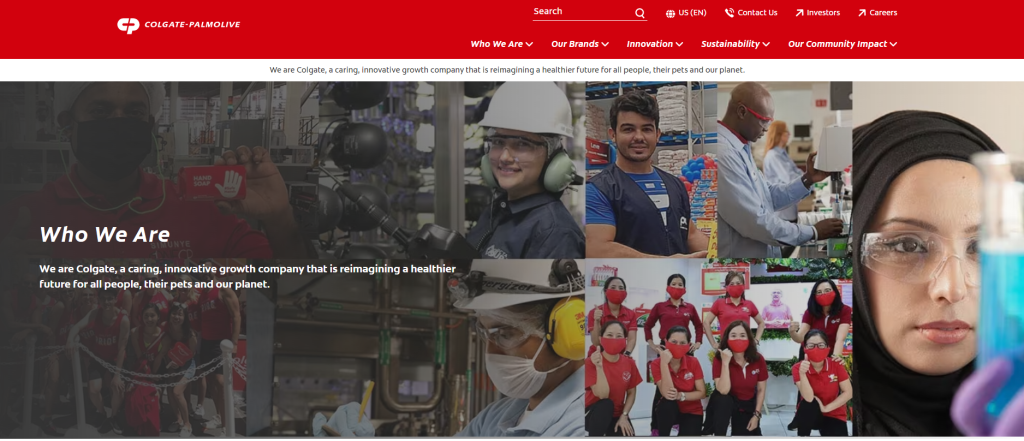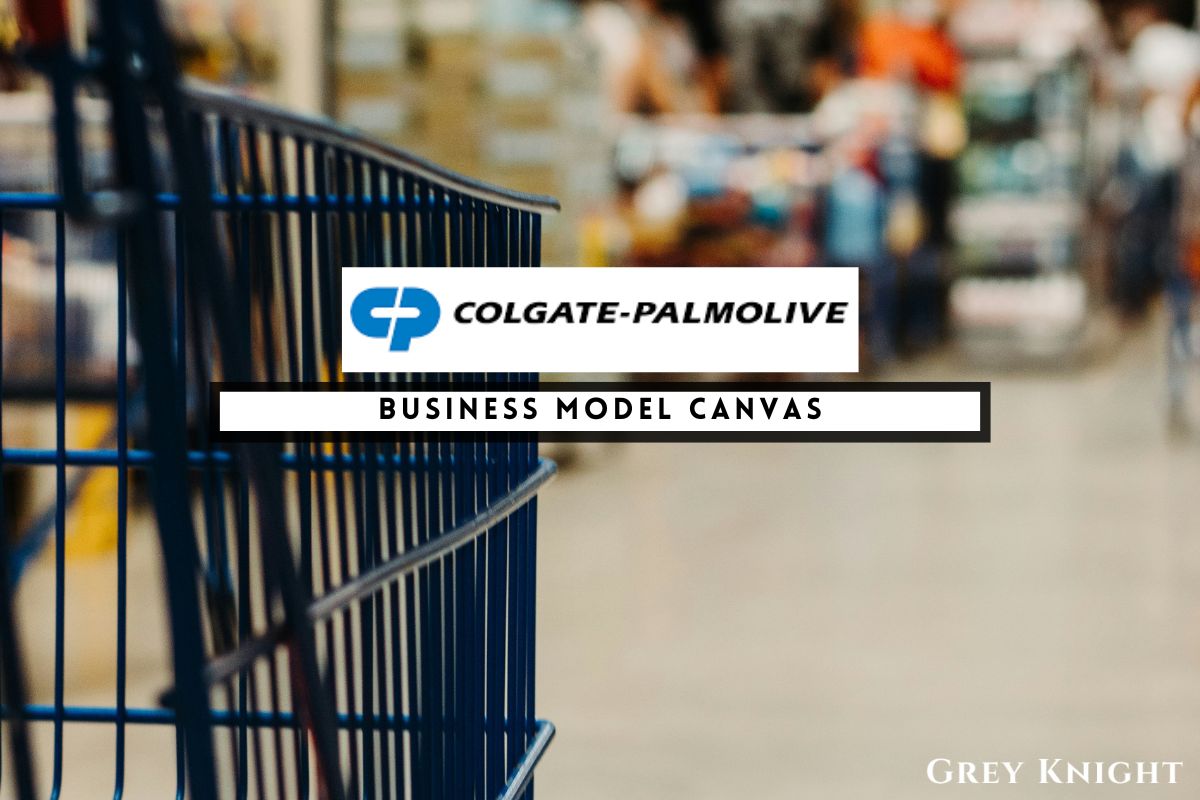Table of Contents
ToggleA Brief History of Colgate-Palmolive
Colgate-Palmolive Company was founded in 1806 by William Colgate in New York City. Originally a small soap and candle business, Colgate eventually expanded into the production of toothpaste and toothbrushes in the 1870s, and then into a full line of oral care products.
Meanwhile, in 1886, soap manufacturer B.J. Johnson & Company was acquired by the Palmolive Company. The newly formed Palmolive Company then began producing a popular line of soap and personal care products.
In 1928, Colgate and Palmolive merged to become the Colgate-Palmolive Company, creating a global consumer products giant with a focus on oral care, personal care, and household cleaning products. Over the years, the company has continued to innovate and expand its product offerings, acquiring brands like Hill’s Pet Nutrition and Tom’s of Maine.
Today, Colgate-Palmolive Company is a multinational corporation with a presence in over 200 countries and territories, and its products are used by millions of consumers worldwide. With a long history of success and a commitment to sustainability, the company continues to be a leader in the consumer goods industry.
Who Owns Colgate-Palmolive?
Colgate-Palmolive Company is owned by its shareholders, who collectively own the company and have a say in its decision-making processes. The company’s shareholders include a mix of individual investors, mutual funds, and institutional investors such as pension funds and asset management firms. As of the latest available data, the top 10 shareholders of Colgate-Palmolive Company are:
1. The Vanguard Group
2. BlackRock, Inc.
3. State Street Corporation
4. Fidelity Investments
5. Capital Group Companies
6. Wellington Management Group
7. T. Rowe Price
8. Northern Trust Corporation
9. Geode Capital Management
10. Bank of America Corporation
These shareholders hold significant stakes in the company and play a role in shaping its future direction and performance.
Colgate-Palmolive Mission Statement
The mission of Colgate-Palmolive Company is to strive to deliver the best and most innovative products to improve the lives of consumers around the world. They are committed to conducting their business with the highest ethical standards and respect for the environment, and to creating a workplace that values diversity and inclusion. Through their products and actions, they aim to make a positive impact on the communities they serve and to be a trusted partner for consumers and customers.

How Colgate-Palmolive Makes Money?
Colgate-Palmolive Company operates on a business model focused on manufacturing and selling consumer products in the oral care, personal care, home care, and pet nutrition categories. The company makes money primarily through the sale of its branded products, such as toothpaste, toothbrushes, soaps, detergents, and pet food. Colgate-Palmolive generates its revenue stream through a combination of retail sales, e-commerce sales, and distribution partnerships with wholesalers and retailers. Additionally, the company also earns income through licensing agreements and royalties for the use of its trademarks and patents. Overall, Colgate-Palmolive’s business model is centered around offering high-quality, trusted products to consumers and leveraging its strong brand presence to drive sales and profitability.
Colgate-Palmolive Business Model Canvas
The Business Model Canvas is a strategic management tool used to visualize and develop business models. It consists of 9 key components that help businesses to clearly define their value proposition, customer segments, revenue streams, and more. Each component provides a clear overview of the company’s operations and helps to identify areas for improvement and growth.
Customer Segments:
1. Consumer – Colgate-Palmolive targets individual consumers who use their oral and personal care products.
2. Businesses – The company also caters to businesses and institutions, providing bulk orders and tailored solutions for their hygiene and cleanliness needs.
Value Propositions:
1. Quality Products – Colgate-Palmolive offers high-quality oral and personal care products that are trusted by consumers worldwide.
2. Innovation – The company continuously invests in research and development to bring innovative products to the market.
3. Brand Reputation – Colgate-Palmolive boasts a strong brand reputation and is known for its commitment to customer satisfaction and wellness.
Channels:
1. Retail – The company distributes its products through traditional retail channels, including supermarkets, pharmacies, and convenience stores.
2. E-Commerce – Colgate-Palmolive also sells its products online through its own website and through various e-commerce platforms.
Customer Relationships:
1. Direct Sales – Colgate-Palmolive maintains direct relationships with customers through its retail and e-commerce channels.
2. Customer Service – The company provides customer support through various channels, including helplines and online chat support.
Revenue Streams:
1. Product Sales – The primary source of revenue for Colgate-Palmolive comes from the sales of its oral and personal care products.
2. Licensing and Royalties – The company also generates revenue through licensing its brand and trademarks to other businesses.
Key Resources:
1. Manufacturing Facilities – Colgate-Palmolive owns and operates manufacturing facilities to produce its products.
2. Research and Development – The company invests in R&D to develop new products and technologies.
Key Activities:
1. Product Development – Colgate-Palmolive continuously develops and refines its product offerings to meet consumer needs and demands.
2. Marketing and Advertising – The company engages in marketing and advertising activities to promote its products and build brand awareness.
Key Partners:
1. Suppliers – Colgate-Palmolive partners with suppliers to source raw materials and components for its products.
2. Distributors – The company works with distributors to ensure its products reach a wider market.
Cost Structure:
1. Production Costs – Costs associated with manufacturing, packaging, and quality control of its products.
2. Marketing and Advertising – Investments in marketing campaigns, branding, and promotional activities.
Colgate-Palmolive’s Competitors
Colgate-Palmolive Company faces competition from several major players in the consumer goods industry. Some of its top competitors include Procter & Gamble, Unilever, Johnson & Johnson, Kimberly-Clark, and The Clorox Company. These companies are also global leaders in the production and distribution of household and personal care products, and they continue to challenge Colgate-Palmolive with innovative products and aggressive marketing strategies. As a result, Colgate-Palmolive must continuously adapt and differentiate itself to maintain a competitive edge in the market.
Colgate-Palmolive SWOT Analysis
Strengths:
1. Strong global brand presence
2. Diverse product portfolio including oral care, personal care, and pet nutrition
3. Strong research and development capabilities
4. Robust distribution network
5. Sustainable sourcing practices
Weaknesses:
1. Dependency on a few key markets for the majority of revenue
2. Limited presence in certain product categories compared to competitors
3. Vulnerability to currency fluctuations
4. High competition in oral care and personal care segments
5. Limited presence in emerging markets
Opportunities:
1. Increasing demand for natural and sustainable products
2. Growth potential in emerging markets
3. Expansion through mergers and acquisitions
4. Technological advancements for product innovation
5. Growing demand for pet nutrition products
Threats:
1. Intense competition from local and international players
2. Changing consumer preferences and behavior
3. Fluctuating raw material prices
4. Regulatory changes impacting product formulations
5. Economic and political instability in key markets.
Concluding Analysis
As I wrap up my analysis of Colgate-Palmolive’s business model, I can’t help but feel optimistic about the future of the company. With its strong focus on research and innovation, a diverse product portfolio, and a global presence, Colgate-Palmolive is well-positioned for continued success. The company’s commitment to sustainability and social responsibility also bodes well for its long-term prospects. From an analyst’s perspective, I see great potential for growth and expansion in the coming years. As consumer preferences and market dynamics continue to evolve, I believe Colgate-Palmolive is poised to adapt and thrive in the ever-changing business landscape. I look forward to witnessing the company’s continued success and am eager to see how it will continue to shape the industry.
Additional Resources
To keep learning and advancing your career, we highly recommend these additional resources:
Business Model Canvas of The Top 1,000 Largest Companies by Market Cap in 2024
A List of 1000 Venture Capital Firms & Investors with LinkedIn Profiles
Peter Thiel and the 16 Unicorns: The Legacy of Thiel Fellowship












